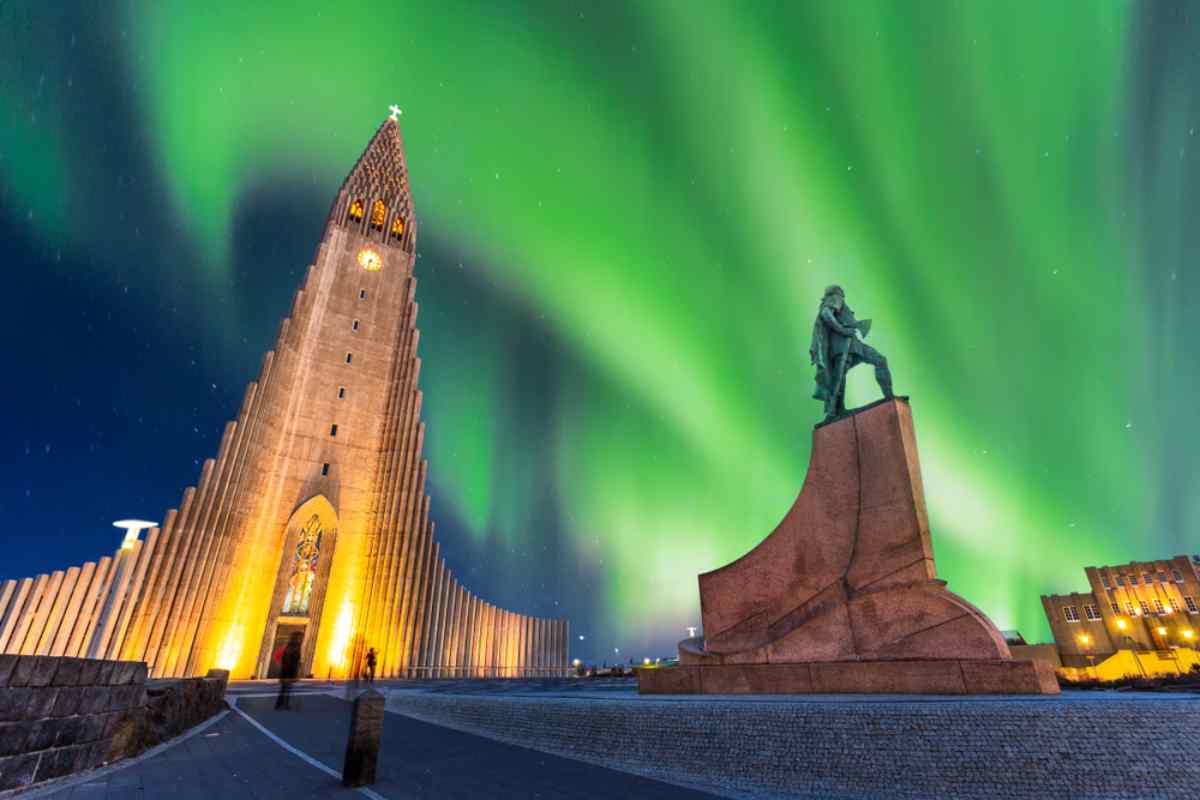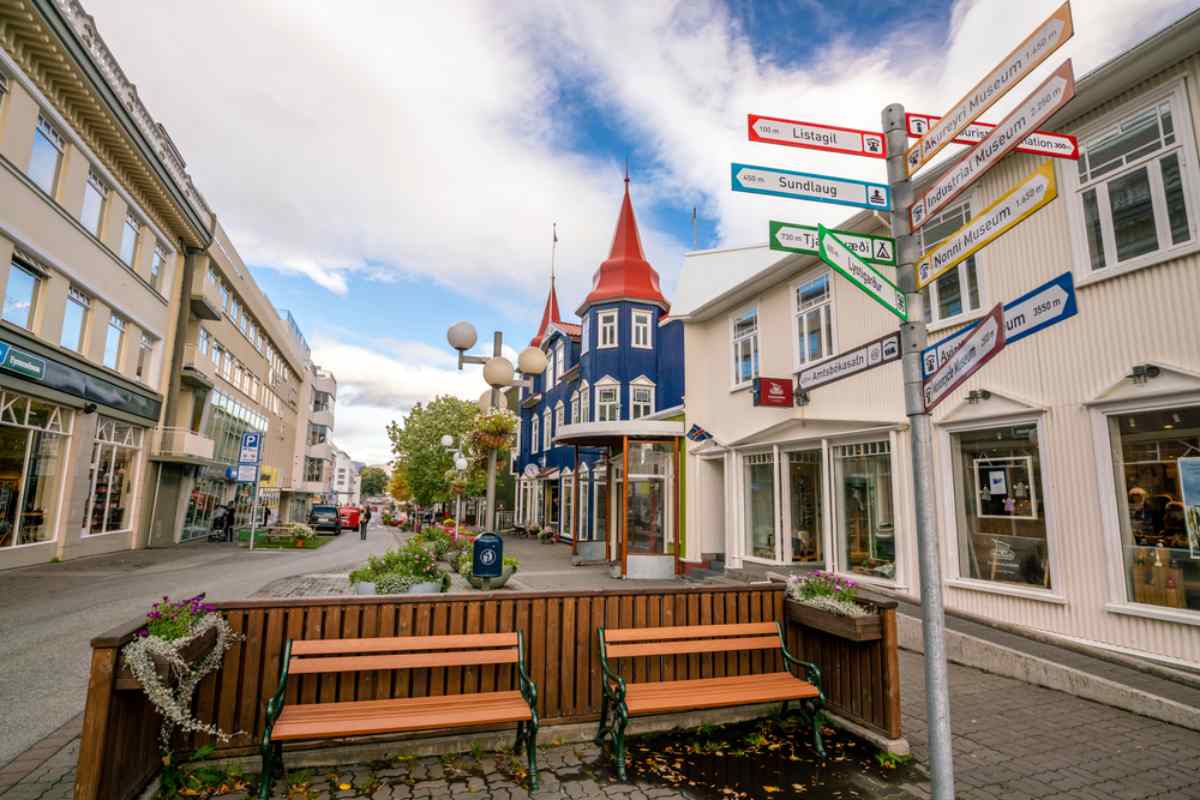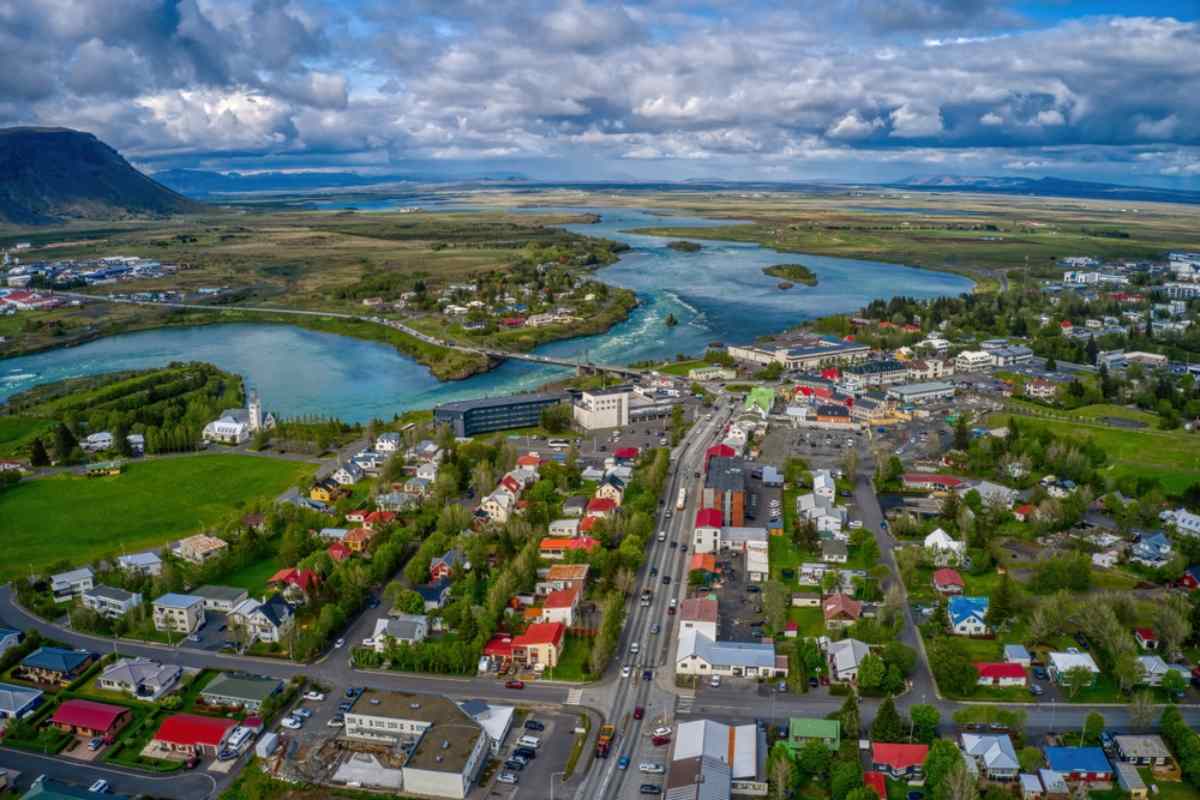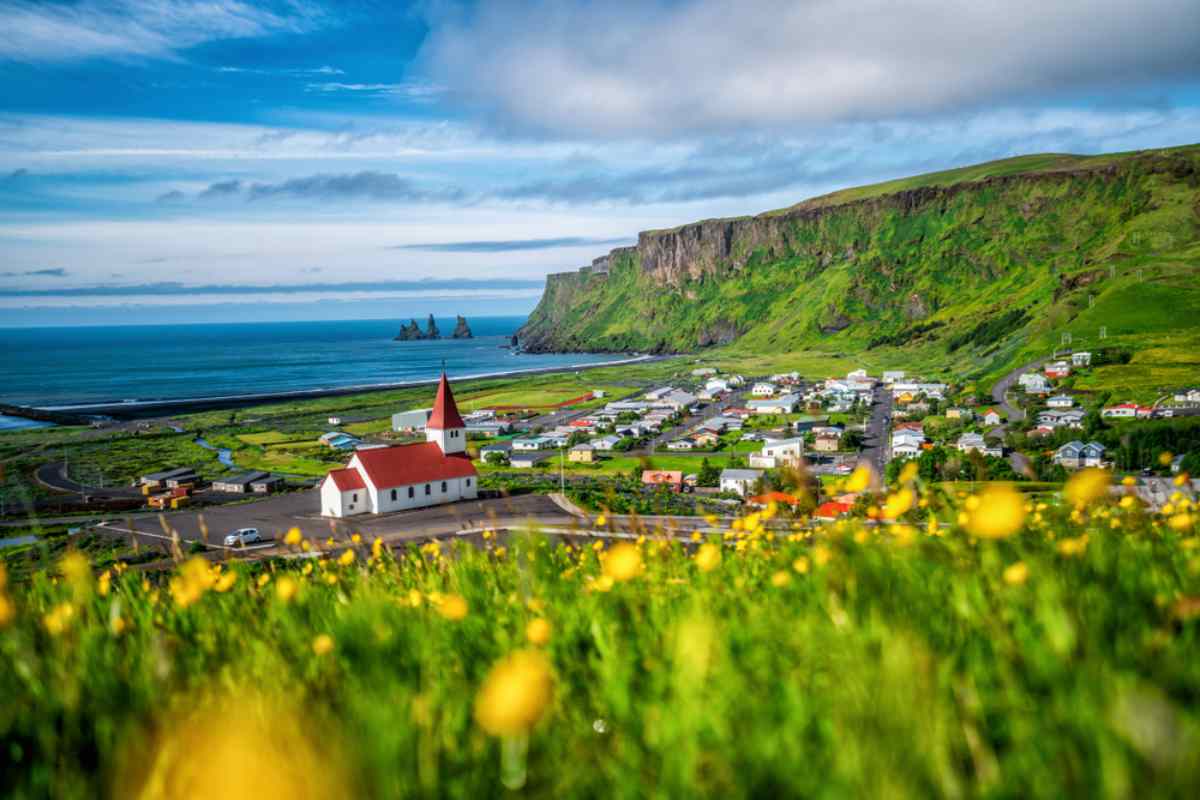Living in Iceland is an experience like no other – a harmonious blend of ethereal landscapes, vibrant culture, and unique challenges. Before embarking on this journey, being well-prepared and informed about every facet of Icelandic life is crucial.
From understanding the climate to navigating the cost of living, a smooth transition requires attention to detail. To help make the process easier, this guide focuses on all the elements one needs to consider before committing to a move.
We provide insight into the job market, and the cultural aspects of living in Iceland – plus tips for settling into life as an expat.
The Pros and Cons of Living in Iceland
Like any destination, Iceland has its allure and its challenges. But what exactly are the pros and cons of living in Iceland? Let's delve deeper into this topic to help you consider whether the Land of Fire and Ice is your dream destination.
Pros of Living in Iceland
- High quality of life: One of the prominent pros of living in Iceland is its high quality of life. With a focus on well-being and sustainability, Iceland places high in global happiness and contentment surveys.
- Low crime rate: When talking about the benefits of living in Iceland, it's worth noting the low crime rate. Its safe and harmonious society contributes significantly to Iceland's peaceful atmosphere.
- Clean environment: Living in a clean and well-preserved environment is another pro of living in Iceland. The country's commitment to renewable energy and preserving nature adds to its appeal.
- Strong social safety net: The strong social safety net in Iceland is a positive point when you are living in Iceland. The government provides comprehensive healthcare and robust welfare systems.
- Unique culture: The unique and rich culture of Iceland, characterized by Icelandic folklore, arts, and traditional cuisine, adds to the pros of living in Iceland, making it an attractive destination for expats.

Cons of Living in Iceland
- High cost of living: One major point of the cons of living in Iceland is the high cost of living. Expenses for housing, food, and transportation can be steep.
- Long winters: While some may see the long winters as a part of the unique charm, they can be challenging for many. The days are short, and the temperatures can be harsh.
- Remote location: Iceland's remote location can be a challenge when traveling. The distance between cities and the limited access to international flights are points worth considering before deciding to move here.
- Language barrier: Although many Icelanders speak English, the Icelandic language is the primary communication medium. This can pose challenges for those living in Iceland without proficiency in Icelandic.
What's The Cost of Living in Iceland
Understanding how much it costs to live in Iceland is crucial for any prospective resident. Here's a breakdown of the primary expenses of living in Iceland:
- Housing: If you're wondering how much rent is in Iceland, the answer typically depends on location and amenities. Generally speaking, the average cost of housing in Reykjavík is high. Expect to pay around $1,200 to $2,000 monthly for a one-bedroom apartment in the city center.
- Food: Eating out can be pricey, with a meal at a mid-range restaurant costing about $60 per person. While expensive compared to other countries, groceries can average around $300-$450 per month.
- Transportation: The 24-hour Reykjavík City Card grants you unlimited access to city buses. The pass costs around $35 daily and grants access to the city's swimming pools and museums. A one-way bus ticket costs around $3.50 and doubles at night to $7.
- Utilities: Utilities, including heating, electricity, and internet, can cost around $150 to $250 monthly.
- Other expenses: Entertainment, clothing, and other miscellaneous expenses can vary, but budgeting an additional $200 to $400 monthly is a good starting point when living in Reykjavík.

The Climate in Iceland
Living in Iceland means adapting to a unique climate. Known for its cold winters and mild summers, the weather in Iceland is often as breathtaking as the country's landscapes. Understanding the climate in Iceland provides a realistic expectation for expats.
- Average temperatures: Iceland has a temperate maritime climate, which means the Gulf Stream moderates the weather. The average summer temperature in Reykjavík ranges from 10-12°C (50-54°F), while winter averages range from 1 to 2°C (33-35°F).
- Precipitation: Iceland experiences a lot of precipitation, especially in the southern and western parts. The average annual rainfall in Reykjavík is approximately 800 mm (31 in). In contrast, the southern coast can receive up to 2,500 mm (98 in) yearly.
- Weather patterns: Weather in Iceland is unpredictable. It's common to experience sun, rain, wind, and snow all in one day. The saying 'If you don't like the weather in Iceland, wait five minutes' is very accurate. Winters can be harsh with heavy snowfall, especially in the north and the Icelandic highlands.

The Job Market in Iceland
Whether Iceland is a good place to live often depends on an individual's employment prospects. Therefore, getting a grasp on the job market is essential. Here, we delve into the job market in Iceland, discussing opportunities, average salaries, and more.
Types of Jobs Available
In assessing whether Iceland is a good country to move to, a key consideration is the types of jobs available. The country's economy is heavily dependent on technology, renewable energy, and tourism, providing significant employment opportunities for locals and expats. Let's explore the employment opportunities that Iceland offers.
- Tourism, Hospitality, and Transportation: There's a high demand for jobs in these sectors due to the stunning natural landscapes and influx of tourists each year. Seasonal work opportunities are available based on relevant skills and experience in the tourism industry and customer-facing roles.
- Technology: There's a rising demand for IT professionals proficient in programming, networking, hardware, and data analytics. Job roles in high demand include IT sales administrator, IT technician, full-stack developer, and data scientist.
- Renewable Energy: The Icelandic government's significant investment in renewable sources has led to a high demand for skilled individuals. Some roles include geothermal engineer, hydrologist engineer, research scientist, and operations manager.
- Manufacturing: As the country transitions to a low-carbon economy, there's a demand for manufacturing jobs. Roles in this sector include production engineer, maintenance technician, production supervisor, and quality assurance (QA) technician.
- Creative Arts: With a focus on culture and arts, skilled artists are needed in the creative industry. Job roles in this sector include graphic designer, art director, animator, and photographer.

Salaries in Iceland
In 2022, the average monthly wage reached ISK 808,000, equivalent to $6,165.75. Understanding the average salaries in Iceland is crucial to gauge whether your income will support the lifestyle in Iceland that you desire. Over the years, salaries in Iceland have experienced a noteworthy increase.
Visa Requirements
To live and work in Iceland, non-EU citizens must adhere to specific visa requirements. Typically, you will require a residence permit to stay for more than three months. These permits hinge on factors such as employment status or family ties.
It's worth noting that securing a visa can be a complex process, and understanding Iceland's living conditions is pivotal in this process. We advise you to start the application process well before your planned move and check the Icelandic Directorate of Immigration for current and detailed information.

The Culture of Iceland
When pondering what living in Iceland is like, it's essential to consider this Nordic island nation's rich and diverse cultural heritage. Icelandic culture is a unique blend of ancient Norse traditions and contemporary Nordic influences, reflected in everything from language and religion to food and arts.
Language
What is it like to live in Iceland regarding language? Icelandic, the nation's official language, is deeply rooted in Old Norse, the language of the Vikings. While learning Icelandic can be challenging due to its complexity and unique phonetics, most Icelanders speak excellent English, making communication for expats relatively straightforward.
Religion
Most Icelanders belong to the Evangelical Lutheran Church of Iceland, reflecting the country's rich religious heritage. Yet, living in Iceland also allows exposure to many other religions, such as Roman Catholicism and Ásatrú, the traditional Norse religion.
Food
Is Iceland a good place to live concerning food? Absolutely! The Icelandic cuisine offers a unique gastronomic experience, heavily influenced by the country's marine and pastoral resources. From traditional dishes like fermented shark and Skyr to contemporary culinary delights, the food culture in Iceland is an exciting exploration for residents and visitors alike.

Arts and Culture
What is life like in Iceland in terms of arts and culture? Iceland boasts a vibrant arts scene filled with music, literature, and visual arts. Iceland's art is renowned for its unique blend of traditional and modern influences. From galleries and theaters to music festivals and literary events, the cultural life in Iceland is a treasure trove of creativity and expression.
The Best Places to Live in Iceland
When deciding where to settle in Iceland, it's vital to consider where people live in Iceland. The towns and cities vary in size, amenities, and lifestyle offerings. Here are some of the best places to live in Iceland.
Reykjavík
Living in Reykjavík, the capital of Iceland, offers a vibrant fusion of cosmopolitan living with outdoor adventure. Reykjavík is well-known for its colorful houses, thriving art scene, and geothermal pools. Despite being the world's northernmost capital, Reykjavík offers residents a warm and welcoming community, making it an ideal choice for expats.

Akureyri
Akureyri, known as the 'Capital of North Iceland', is another compelling reason to move to Iceland. This charming town offers a homely atmosphere with rich cultural experiences, scenic beauty, and a strong community spirit. With its art galleries, museums, geothermal pools, and ski resorts, Akureyri encapsulates the quintessential Icelandic lifestyle.

Selfoss
Selfoss, one of the compelling reasons to live in Iceland, is a thriving town nestled in the country's southwest region. It offers a harmonious blend of urban amenities and natural splendor, featuring diverse culinary offerings, cultural festivals, and stunning landscapes. Living here brings you close to Iceland's breathtaking outdoor adventures, including the famed Golden Circle route.

Vík í Mýrdal
Vík í Mýrdal, a picturesque village on the southern coast, is an exemplary reason why Iceland is considered a good country to live in. Its stunning natural beauty, black sand beaches, and proximity to the impressive Reynisdrangar sea stacks showcase Iceland's unparalleled landscapes and tranquil lifestyle. Living in Vík í Mýrdal allows residents to enjoy Iceland's natural wonders right at their doorstep.

Ísafjörður
Ísafjörður, a town in the Westfjords region, embodies the unique charm of Iceland's living conditions. It offers a quaint, serene lifestyle with stunning fjord views, rich cultural experiences, and a close-knit community. Despite its remote location, Ísafjörður is known for its high quality of life, making it a compelling choice for those seeking the tranquility of Icelandic life.

How to Move to Iceland
If you're seriously considering living in Iceland, there are several crucial steps you'll need to follow to make the transition as smooth as possible. Here's a brief guide on how to move to Iceland:
- Visa Requirements: For non-EU/EEA nationals, moving to Iceland typically means securing a residence permit, which often aligns with the purpose of stay, be it work, study, or family reunification.
- Finding a Place to Live: Whether you prefer the bustling energy of Reykjavík or the tranquil charm of Ísafjörður, Iceland offers a variety of living options. Research thoroughly to find an area that matches your lifestyle and budget.
- Getting a Job: The labor market in Iceland is competitive but offers excellent wages. Your skills and experience will heavily influence your job hunt. It's beneficial to secure a job offer before relocation, as some work permits require employer sponsorship.
- Learning Icelandic: Although most Icelanders speak excellent English, learning Icelandic can enrich your experience and help you integrate into the local community. Consider online courses like Icelandic Online or getting a private tutor.

Tips for Living in Iceland
To fully immerse yourself in the enchanting Iceland life, there are a few key aspects to consider:
- Be prepared for the cold: Iceland's climate can be chilly. Invest in warm clothing to enjoy the beauty of the Icelandic seasons comfortably.
- Learn Icelandic: While most Icelanders speak English, learning the local language will enhance your cultural experience.
- Get involved in the community: Participating in local events and activities will help you feel connected and make new friends.
- Enjoy the outdoors: Iceland's breathtaking landscapes offer plenty of opportunities for outdoor activities. Some of the best include skiing, hiking, whale-watching, and hunting for the Northern Lights.
What Makes Living in Iceland Special
Living in Iceland offers a blend of rich culture, breathtaking landscapes, and unique challenges. If you're considering making the move and diving into the job market, being mobile can be a game-changer.
Renting a car in Reykjavík allows you the flexibility to explore potential workplaces, meet employers, and truly immerse yourself in Icelandic life. After all, the journey to a new life in Iceland begins with the drive to discover its myriad opportunities.


 By
By


